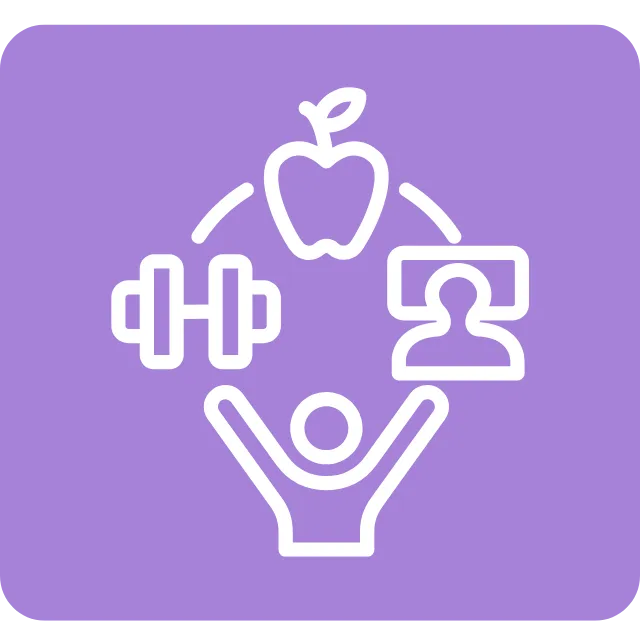
Health and Nutrition Program
Supporting Health and Well-being: How the Health and Nutrition Program Enhances Children’s Lives
Introduction
At Born to Be Wealthy Foundation, we believe that a child’s well-being is at the heart of their ability to succeed in life. Proper nutrition is essential for healthy growth, academic achievement, and emotional well-being. However, many children in underserved communities lack access to the nutritious food they need to thrive. This is where the Health and Nutrition Program plays a critical role.
The Health and Nutrition Program is designed to ensure that children receive the nourishment they need to grow physically, perform academically, and develop into healthy, confident individuals. By providing nutritious meals, educational resources, and support, this program has a transformative impact on children’s lives.
In this blog post, we’ll explore why good nutrition is so important for childhood development and how the Health and Nutrition Program helps children reach their full potential.
The Role of Nutrition in Childhood Development
Nutrition plays a crucial role in a child’s physical, cognitive, and emotional development. During the early years, children’s bodies and brains are growing rapidly, and they need the right balance of nutrients to support this growth. Nutrients such as proteins, vitamins, minerals, and healthy fats are essential for brain development, immune function, and physical strength.
When children do not receive adequate nutrition, it can lead to a range of developmental issues, including learning disabilities, behavioral problems, and health complications. Malnutrition can also impair cognitive development, making it more difficult for children to focus, learn, and participate in school activities.
The Health and Nutrition Program works to ensure that children have access to the healthy meals they need, providing the foundation for strong physical, cognitive, and emotional development.
How Good Nutrition Fuels Academic Success
Healthy eating directly impacts a child’s academic performance. Nutrient-dense meals provide the energy children need to concentrate, retain information, and participate actively in class. When children are well-fed, they are more likely to attend school regularly, stay engaged, and excel academically.
On the other hand, hunger and poor nutrition lead to fatigue, irritability, and an inability to focus. These factors make it difficult for children to perform well in school, leading to lower grades, absenteeism, and a lack of interest in learning.
The Health and Nutrition Program ensures that children receive regular, nutritious meals, giving them the energy and focus they need to succeed academically. By addressing hunger, the program helps children perform better in school, engage in classroom activities, and develop a love for learning.
Health and Nutrition as a Foundation for Physical Well-being
A healthy body is essential for a child’s overall well-being, and good nutrition is at the heart of physical health. When children receive the right balance of nutrients, they are better equipped to grow, build strength, and develop a robust immune system. Nutritious meals help children maintain a healthy weight, reduce their risk of illness, and stay active.
The Health and Nutrition Program supports children’s physical well-being by providing meals that promote healthy growth and development. By ensuring that children have access to balanced meals, the program helps prevent obesity, malnutrition, and other health conditions that can impact their quality of life.
Addressing Hunger and Food Insecurity
Hunger is a barrier to learning, social interaction, and personal development. Children who experience hunger are more likely to suffer from emotional stress, anxiety, and irritability, which can negatively affect their behavior and ability to connect with others. Food insecurity also leads to absenteeism, as hungry children are more likely to miss school due to illness or lack of energy.
The Health and Nutrition Program works to eliminate hunger by providing nutritious meals and snacks to children who are at risk of food insecurity. By addressing hunger, the program ensures that children can focus on their education and engage in school activities without the distraction of hunger or fatigue.
Empowering Families with Nutrition Education
In addition to providing meals, the Health and Nutrition Program empowers families by offering nutrition education. This includes teaching parents and caregivers about healthy eating habits, meal planning, and budgeting for nutritious foods.
Nutrition education ensures that children continue to have access to healthy meals at home, improving their overall well-being and setting them up for lifelong success. The Health and Nutrition Program helps families make informed decisions about food, empowering them to support their children’s health and development long-term.
The Emotional and Psychological Benefits of Proper Nutrition
Proper nutrition has significant emotional and psychological benefits for children. When children are well-nourished, they are more likely to experience positive moods, improved mental health, and greater self-esteem. Nutrition is linked to the production of neurotransmitters that regulate emotions, helping children feel more stable and balanced.
On the other hand, hunger and poor nutrition can contribute to feelings of frustration, anger, and anxiety, affecting children’s ability to manage their emotions and form positive relationships with others. By ensuring that children have access to nutritious meals, the Health and Nutrition Program helps foster emotional stability, self-confidence, and positive social interactions.
Long-Term Health Benefits: The Lifelong Impact of Healthy Eating
The benefits of good nutrition extend far beyond childhood. Establishing healthy eating habits early in life can help children maintain good health throughout adulthood. By teaching children the importance of nutritious foods, the Health and Nutrition Program helps them develop lifelong habits that can prevent chronic diseases, such as obesity, diabetes, and heart disease.
The program sets children on a path to long-term well-being, ensuring they grow into healthy, active adults who can lead fulfilling lives and contribute positively to their communities.
Success Stories: How the Health and Nutrition Program is Changing Lives
The Health and Nutrition Program has transformed the lives of many children by providing them with the nutrients they need to succeed. Here are a few success stories:
Story 1: Mark, a 9-year-old boy, struggled to concentrate in school due to hunger. After receiving regular meals through the program, Mark’s focus and participation in class improved significantly, and he began excelling academically.
Story 2: Sarah, a 12-year-old girl, had frequent health problems due to poor nutrition. After joining the program, Sarah’s overall health improved, and she gained energy and confidence, leading to better social interactions and a more positive outlook on life.
The Role of Donors and Volunteers in Supporting the Program
The Health and Nutrition Program relies on the generosity of donors and volunteers to provide nutritious meals and educational resources. Donors fund the program, ensuring that children receive the meals they need, while volunteers help distribute food and offer nutrition education to families.
How You Can Get Involved
You can support the Health and Nutrition Program by:
Donating funds, food, or nutritional resources to support the program.
Volunteering your time to help distribute meals, organize events, or educate families about healthy eating.
Spreading the Word to raise awareness and encourage others to get involved.
Conclusion
Good health and nutrition are essential for a child’s growth, development, and future success. The Health and Nutrition Program plays a critical role in providing children with the nourishment they need to thrive. By supporting this program, you are helping children build a foundation for lifelong health and success.















































































